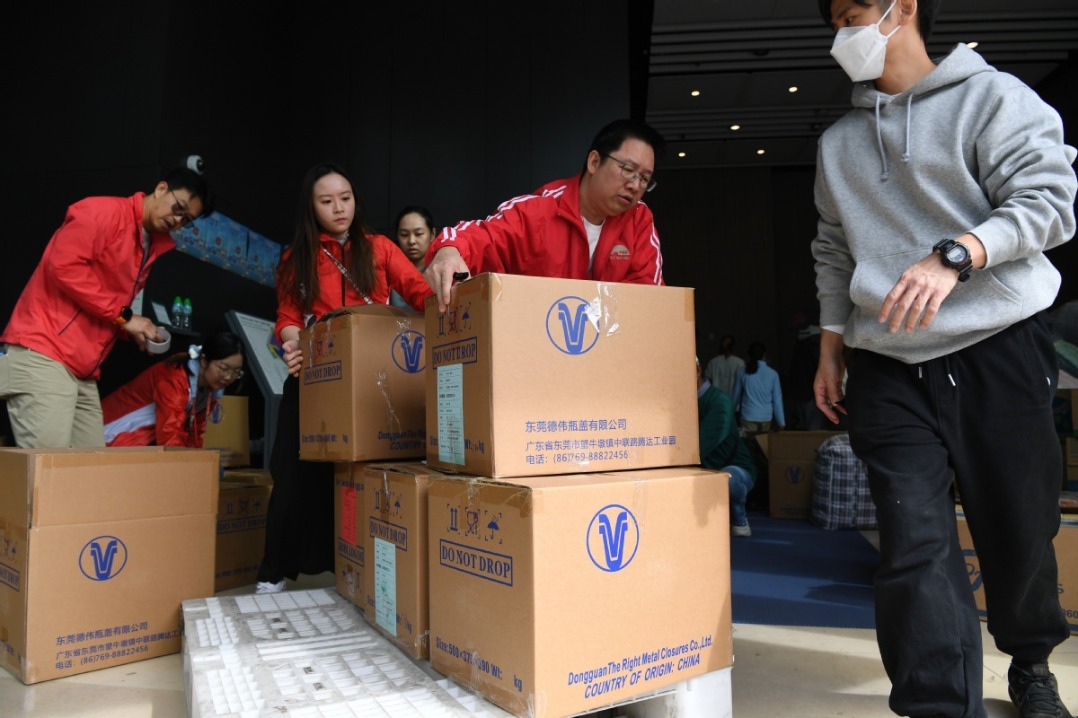WHO expert speaks out on China's epidemic response

Video: Complacency 'biggest challenge' in virus prevention: WHO expert
Video: Novel coronavirus has not mutated: Chinese expert
Video: WHO standing and working with China to fight coronavirus
In an address to global reporters and public health officials in Beijing on Monday evening, Bruce Aylward, a top Canadian epidemiologist who recently headed up the WHO-China Joint Mission on COVID-19, spelled out the impact of aggressive containment measures adopted by the Chinese government and alerted the world to act fast and keep the epidemic under control.
His speech was backed by epidemiological expertise and mathematical charts, and in the end, he turned to a very personal note that stunned the audience before it erupted in applause.
He recalled a visit he paid 25 years ago to Wuhan, the city where the ongoing novel coronavirus outbreak first emerged in December. At that time, he saw a bustling metropolis with energetic people committed to eradicating another disease he was researching.
In contrast was the scene he beheld with awe and respect over the weekend. "The city of skyscrapers, giant autoroutes and a gorgeous hypermodern train station was silent. It was a ghost town," he said. "And behind every window of these skyscrapers we drove past, there were people. There were 15 million people staying put in one place for weeks at a time to stop this disease."
Behind that quiet scene is the anchor of China's disease control work. On Jan 23, the Wuhan government announced it would put the city under lockdown, shutting down public transportation, canceling flights and trains and closing schools and factories.
"And if we spoke with people we were working with in Wuhan, they said: This is our duty. We have to protect the world from this disease. This is our role. We are playing our role," he said.
These "old-fashioned" measures, coupled with meticulous tracking of close contacts of infected people and mass quarantines of all confirmed and suspected cases, have potentially prevented as many as hundreds of thousands of cases and changed the course of what was a rapidly escalating epidemic, Aylward said.
"I just thought it's so important that we recognize the people of Wuhan, it is recognized, the world is in your debt," he said.
"When this disease finishes, hopefully we will have a chance to thank the people of Wuhan for the role they have played in it."
As an experienced epidemiologist famed for his role in leading WHO's response to the Ebola outbreak in West Africa, Aylward said he also suffered from common biases that it is extremely difficult, if not impossible, to stop the spread of a new virus for lack of an effective vaccine or remedy.
"But the decline we are seeing (in China) is real," he said. "Multiple sources of data have shown that it is falling because of the action that is being taken," he said.
According to the National Health Commission, daily new infections nationwide have been trending down for more than a week, with the number of newly discharged patients surpassing that of new infections across China.
"The only successful measure we know so far to contain the COVID-19 is in China," Alyward said. "When people throw up their hands, (China says) let's throw out the old ways, let's adapt, let's innovate, let's stop this virus and that's what they've done," Alyward said.
As he pointed to several pages of charts that compared the natural trajectory of a new viral disease like novel coronavirus against the real curve influenced by interventions from the Chinese government, he said every difference and every line represents a powerful decision by policymakers and tremendous efforts benefiting a large number of Chinese people.
He then urged the rest of the world to understand the strategy adopted by China and learn from the country's effective knowledge and tools in battling novel coronavirus, as clusters of infections have emerged in foreign countries and the risk of this outbreak escalating into a global pandemic still stands.
Alyward said: "It is not to praise China, it is to open the door so the rest of the world can realize there is something that can be done as people are starting to despair."
Italy, which has reported more than 200 infections, was among the few countries that have followed suit by locking down small communities and neighborhoods.
Alyward added what distinguished China's method from ancient draconian measures was twofold: the tremendous collective commitment and will of the Chinese people, as well as agility of thinking, reflected in frequent updates of its clinical guidance documents and the rollout of tailored measures to adapt to local circumstances.
He suggested other countries can start with finding and quarantining close contacts promptly, pushing basic health habits and moving from there to suspensions of public gatherings and closures of schools.
"Every day we stop to think about this disease, (hesitating on) whether should we do it or not, the disease will take advantage and double the number of infections," he said. "We have to move fast."
Video: Qiao Yuhao
Video editor: Xing Xudong
Subtitle: Zhang Wenfang
Supervisors: Zhang Chunyan and Wang Jianfen
- Xi calls for promoting volunteer spirit to serve national rejuvenation
- China to promote high-quality development in human resources services
- China's nature reserves drive biodiversity, ecosystem restoration
- Waters surrounding Huangyan Island see a thriving and resilient coral reef ecosystem
- Hong Kong police to conduct full evidence collection, investigation into residential area fire
- Fujian Coast Guard bolsters operational control near Jinmen




































